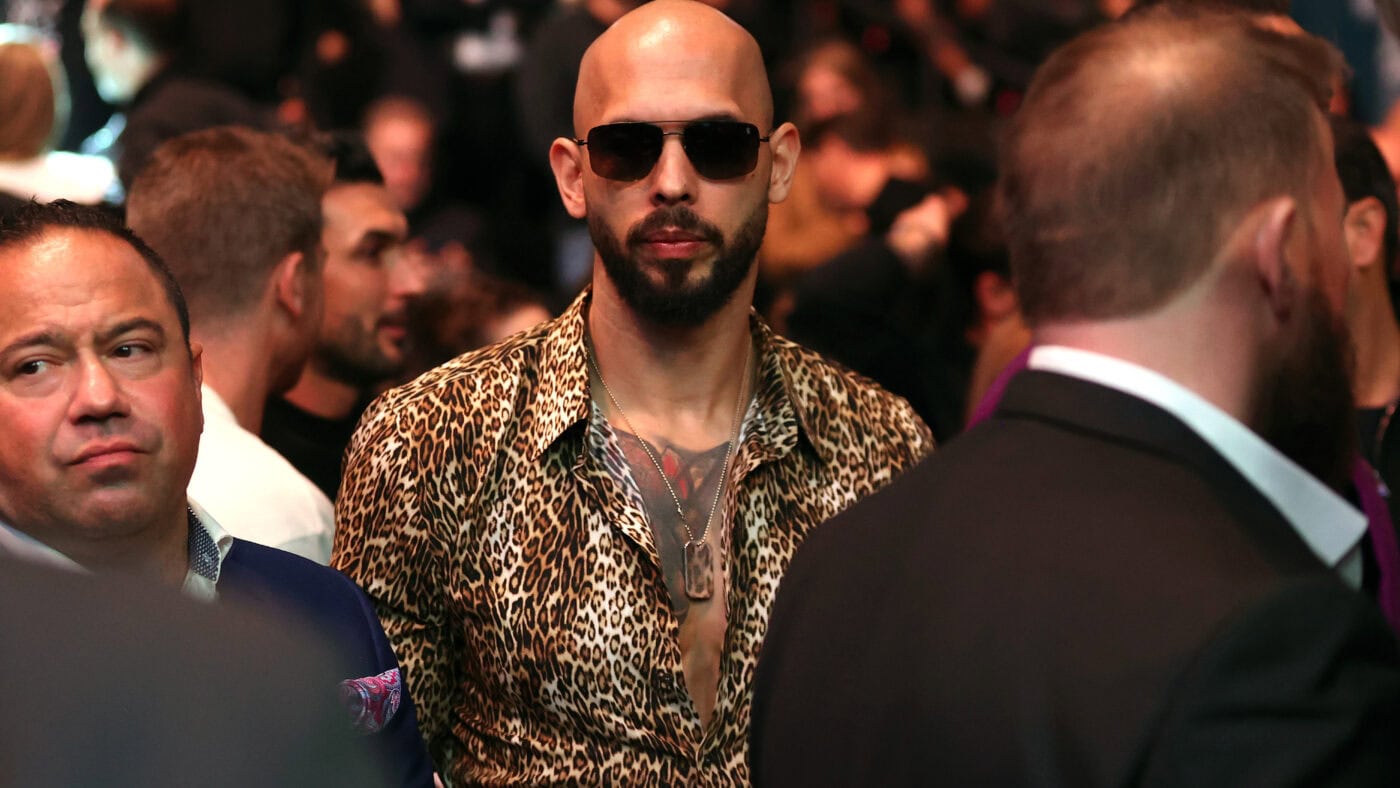Unless you’ve been living under a rock on a distant planet, you’ve heard the name Andrew Tate. And no, don’t worry, I’m not here to endorse him. I don’t buy into his philosophies, his alpha posturing or his digital pyramid scheme disguised as mentorship. But I do object to the media’s obsession with him – especially The Guardian.
The news outlet views Tate not as a symptom but as the origin story – the human equivalent of a lab in Wuhan – for every broken boy in Britain. In the medical field, this is known as a fundamental misdiagnosis, where the flare-up is confused with the underlying illness that caused it.
If a young male ends up like the fictional Jamie in ‘Adolescence’, Tate didn’t do it alone. The education system, the media and the culture all had their hands on the wheel long before the brash influencer started posting.
Few outlets, if any, have been more complicit in the dismantling of masculinity than The Guardian. Its writers (including Owen Jones) appear to see manhood itself as a kind of a disease, a literal man-made virus that must be quarantined and eventually eradicated. Leading the assault on the ‘unfairer’ sex is Arwa Mahdawi, The Guardian’s self-appointed high priestess of misandry. She writes a recurring column called ‘The Week in Patriarchy’ – as if Britain were stuck in some dystopian version of 1925, with streets patrolled by men in monocles harassing women at every turn.
The Guardian has made ‘the patriarchy’ its go-to bogeyman. Yet it has had almost nothing to say about how the vilification of masculinity has left a generation of boys aimless. Instead, it actively champions a culture that sees men as either useless or dangerous.
As for broader British culture, it’s not much better. What, I ask, has it offered its boys over the last two and a half decades? A steady, nutritionally-deficient diet of weak male figures, self-loathing archetypes and sitcom dads you wouldn’t trust to boil an egg. I’m talking about the likes of Ian Beale from EastEnders – needy, neurotic, perpetually defeated – and Martin Fowler, a doormat with the IQ of a doorknob. Then there’s Coronation Street, with its lineup of thoroughly emasculated men: Tyrone, David Platt, Chesney and the rest – hapless, henpecked or always on the verge of a breakdown.
The not-so-subtle message is that men are, at best, utterly ridiculous. Childish, clueless and certainly not capable of functioning without a woman to supervise them. Even the supposedly tough characters are reduced to caricature. Danny Dyer is a prime example. His entire career is a parade of shouty, two-dimensional geezers who act hard but are slaves to booze and drugs.
Culture shapes identity. If every male figure you grow up observing is pathetic, disposable or despised, what are you meant to become?
Is it any surprise that boys are struggling, not just in classrooms but in silence? Depression, a debilitating condition that appears to be on the rise, often looks different in boys. It doesn’t always manifest with tears and cries for help. In truth, it rarely does. Instead, it may be seen through withdrawal, anger, risk-taking, violence and numbness. Schools and institutions often simply respond with punishment, rather than recognising these patterns as signs of a boy in distress.
This is a serious point. Depression and suicide are closely linked. As recent studies demonstrate, while close family ties protect girls from suicidal thoughts, boys benefit most from activities – sports, hobbies and vigorous forms of exercise. However, in modern-day Britain, those have been largely removed from the socially-oriented equation. Play is seen as aggression. Risk as danger. Competition as toxic.
Across the nation, boys are more likely to be medicated, suspended and to drop out of school. In fact, male suffering has reached such alarming levels that even The Guardian can no longer completely ignore the problem. Yet the solutions offered remain hopeless.
We’re told boys need to open up more, to cry more, to ‘be vulnerable’. But vulnerability without direction isn’t a cure – it’s cruelty. Telling a boy to cry without providing a path out of darkness is like asking someone to open a wound and then refusing to stitch it up.
Boys are not girls. They don’t need more safe spaces to emote. They need real guidance, purpose, challenge, structure and more aspirational role models in schools and in the media.
The problem isn’t just Tate. The problem is that we’ve created a culture that treats masculinity as, at best, something to be tamed and, at worst, like a type of cancer. From the moment they start school, we tell boys, either implicitly or explicitly, that they’re the problem. We reward passivity and punish assertiveness. We label energy as a disorder. And then we act shocked when they grow up resentful, aimless or worse.
Tate routinely declares that the world is harsh, that nobody is coming to rescue you, that strength matters and that weak men never garner respect. It’s pretty easy to understand why that message resonates with alienated boys looking for meaning in a world that too often tells them they’re neither wanted nor loved.
Click here to subscribe to our daily briefing – the best pieces from CapX and across the web.
CapX depends on the generosity of its readers. If you value what we do, please consider making a donation.


